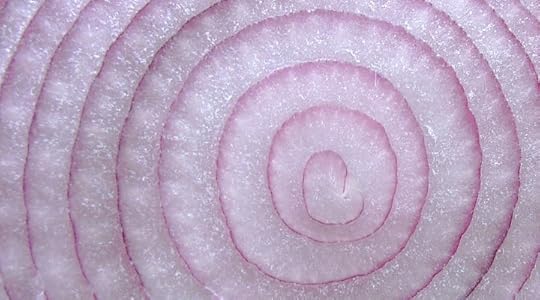What is your relationship with fear? – Lessons from the Journey
If you’ve been reading my blog, you know I’ve been listening to Warwick Schiller’s podcast, Journey On for a while now, trying to catch up on episodes from the last year. Warwick has a list of 20 questions he asks his podcast guests. Hearing the same questions asked in multiple episodes led me to think about what my own answers would be. There is one question that sticks out for me–one that always makes me pause, and think…
What is your relationship with fear?
What a loaded question. I’ve been struggling with this post for a few weeks now, trying to figure out how to answer it. Each time I dive in, I realize just how far down the rabbit hole this subject can be followed. Each time I think I’ve captured it, whoops, there’s another level. I’ve run the gamut from the simple views of doing (or not doing) some activity that scares me, to the complexities of understanding fear through the lens of a trauma survivor. The deeper I dove into my own experiences in an effort to define my relationship with fear, the further I drifted from a comprehensive answer.
What I finally realized is, I wasn’t really grasping the question. You see, Warwick didn’t ask how I felt about fear, or how I viewed fear, or even how I dealt with fear. The question is: What is your relationship with fear?
Fear is a complex, multi-layer construct, based on life experiences, both conscious and subconscious, cognitively remembered and consciously forgotten, that starts from our earliest developmental moments. Therefore, understanding our relationship with fear includes our ability to recognize it’s role in our life, to acknowledge how it shapes us, and our willingness to touch it, to know it, and to carry on anyway.
Now, you may be thinking: Yeah…that’s not what he meant. Perhaps that is true, perhaps not…after all, whether intentional or not, the question is about relationship–and Warwick’s exploration with relationship and horses has and continues to help a lot of people travel down a path of self-discovery. Such a journey, if traveled long enough, eventually will lead you to discover what role(s) fear has played in you life.
[image error]Pexels.com" data-medium-file="https://peacehorsejourney.files.wordp..." data-large-file="https://peacehorsejourney.files.wordp..." src="https://peacehorsejourney.files.wordp..." alt="" class="wp-image-566" />Photo by Yuma Kim on Pexels.comRelationships are complex
As I struggled to answer Warwick’s question, I wondered if perhaps the difficulty comes from trying to understand what “relationship” means in my life, and just how intimately I wish to know and understand fear.
After dwelling on this for a while, I decided fear is like an onion–lots of layers. Many of us are comfortable traipsing around the first few layers: getting on the roller coaster, going to the scary movie, engaging in a potentially dangerous activity like horseback riding, driving on I-75 through Detroit, eating a gas station hot dog. Those relationships are a bit like the barista at your favorite coffee joint–you know their name, you maybe have a friendly chat and share some dog pictures, but that is all the deeper the relationship goes. No commitment, no drama.
For example, there is the fear that keeps you safe…
When I rode and trained horses regularly, my response to fear was avoidance in the name of self-preservation. That means I wasn’t about to ride a horse if I thought there was a chance he wasn’t thoroughly prepared to do what I was going to ask. I accomplished this with tons of ground work, to the point where each horse I started under saddle understood and had done everything I would ask them to do ridden, but from the ground first. I never had any interest in riding out bucks or dealing with other dangerous behaviors from the saddle. In that case, my relationship with fear was one of preparedness and prevention.
And the fear that presents a growth opportunity…
I try to do things that scare me, within reason. In these situations, facing my fear allows me to grow. Moving through a fear of trying something new, changing jobs, taking a chance on a new opportunity, public speaking, starting over, talking to a counselor, being alone with my feelings, allowing myself to process and move forward from my trauma–these have all be difficult, scary, and ultimately life-changing growth opportunities. This is the kind of fear I am most likely to run to. In that case, my relationship with fear is one of curiosity.
But, what about the middle of the onion?

The more layers you peel off the fear onion, the deeper you delve into a true understanding of yourself and what informs the decisions you make every day. You must make a conscious effort to discover the center of your onion, because the fear that makes up the core is generally acted on without awareness or the benefit of knowing why.
The center of the fear onion hides things like fear of shame, fear of abandonment, fear of being vulnerable, fear of trusting others, fear of failure, fear of discovering your negative self-talk was right all along (it’s not), fear of not being good enough. It’s that part of you always waiting for the other shoe to drop, waiting to discover too late you’ve once again put yourself in a vulnerable position and are about to be punished for it. Those are the messy fears, the fears we don’t like to look at, the fears that society tells us we should ignore, push down, and dismiss because if we can do that, we will appear strong. But “society” is a lying a** hat.
Some people have no interest in going beyond that surface “barista at your favorite coffee shop” relationship. They will or they won’t, it’s not my place to judge, we’re all walking our own path. But for me, to truly answer the question about my relationship with fear, I had to discover and acknowledge what is at the center of my fear onion.
The center of my fear onion is closely linked to trauma (this is true for many of us and it is worth mentioning that trauma is not always obvious, huge, dramatic, graphic, or even consciously remembered, and it doesn’t have to be any of those things to still affect us deeply). Post traumatic stress disorder (PTSD) causes me to filter my experiences through the “trauma lens,” therefore part of my relationship with fear is understanding fear’s role in that relationship. For me, this understanding is critical to my ability to function in society–to hold a job, have relationships, care for myself, etc. This intimate knowledge creates a pathway to healing from PTSD (a long road I am still traversing but I believe that, because I’m willing to peel back the layers of my fear onion, touch the things that scare me, and learn how to view and handle them differently, I have a chance of flipping the role on trauma–understanding it so I can dis-empower it).
As for Warwick’s question, what is my relationship with fear? This is my answer: My relationship with fear is complex, it is ever evolving, it is a launching pad of self-discovery, an opportunity for growth, and an intimate reminder to be kind, gentle, and loving to myself, and every soul I encounter, for whether we acknowledge it or not, fear is one thing we all have in common.
Peace.
Email Address:
<<< Yes! I would like to receive new
posts in my inbox!
I’d love to read your comments and thoughts, and answer any questions you may have. Please scroll down to leave a comment. Thanks!



